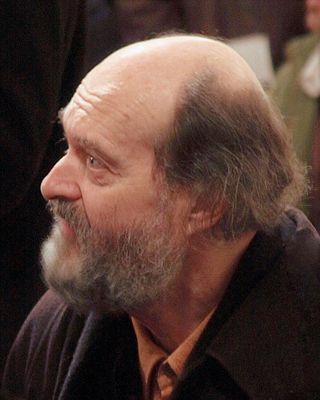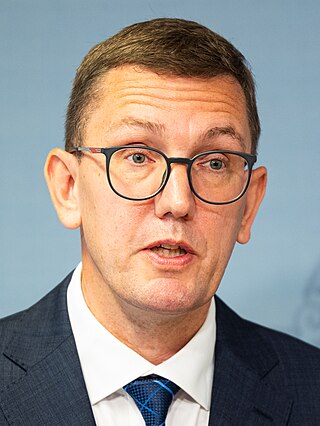 |
|---|
Municipal elections were held in Estonia on 18 October 2009, with advance voting between 8 and 14 October 2009.
The result was a victory for Estonian Centre Party.
 |
|---|
Municipal elections were held in Estonia on 18 October 2009, with advance voting between 8 and 14 October 2009.
The result was a victory for Estonian Centre Party.
| Party | Votes | % | |
|---|---|---|---|
| Estonian Centre Party | 207,565 | 31.53 | |
| Estonian Reform Party | 110,263 | 16.75 | |
| Pro Patria and Res Publica Union | 92,068 | 13.99 | |
| Social Democratic Party | 49,540 | 7.53 | |
| People's Union of Estonia | 12,683 | 1.93 | |
| Estonian Greens | 7,774 | 1.18 | |
| Party of Estonian Christian Democrats | 1,033 | 0.16 | |
| Estonian Independence Party | 289 | 0.04 | |
| Other parties and independents | 176,998 | 26.89 | |
| Total | 658,213 | 100.00 | |
| Valid votes | 658,213 | 99.31 | |
| Invalid/blank votes | 4,600 | 0.69 | |
| Total votes | 662,813 | 100.00 | |
| Registered voters/turnout | 1,094,317 | 60.57 | |
| Source: VVK [1] | |||

The economy of Estonia is rated advanced by the World Bank, i.e. with high quality of life and advanced infrastructure relative to less industrialized nations. Estonia is a member of the European Union, eurozone and OECD The economy is heavily influenced by developments in the Finnish and Swedish economies.
The Republic of Estonia gained its independence from the Russian Empire on 24 February 1918 and established diplomatic relations with many countries via membership of the League of Nations. The forcible incorporation of Estonia into the Soviet Union in 1940 was not generally recognised by the international community and the Estonian diplomatic service continued to operate in some countries. Following the restoration of independence from the Soviet Union, Russia was one of the first nations to re-recognize Estonia's independence. Estonia's immediate priority after regaining its independence was the withdrawal of Russian forces from Estonian territory. In August 1994, this was completed. However, relations with Moscow have remained strained primarily because Russia decided not to ratify the border treaty it had signed with Estonia in 1999.

Tallinn is the capital and most populous city of Estonia. Situated on a bay in north Estonia, on the shore of the Gulf of Finland of the Baltic Sea, Tallinn has a population of about 461,000 and administratively lies in the Harju maakond (county). Tallinn is the main governmental, financial, industrial, and cultural centre of Estonia. It is located 187 km (116 mi) northwest of the country's second largest city, Tartu; however, only 80 km (50 mi) south of Helsinki, Finland, also 320 km (200 mi) west of Saint Petersburg, Russia, 300 km (190 mi) north of Riga, Latvia, and 380 km (240 mi) east of Stockholm, Sweden. From the 13th century until the first half of the 20th century, Tallinn was known in most of the world by variants of its other historical name Reval.

The history of Estonia forms a part of the history of Europe. Humans settled in the region of Estonia near the end of the last glacial era, beginning from around 9000 BC. Starting with the Northern Crusades in the Middle Ages, Estonia became a battleground for centuries where Denmark, Germany, Russia, Sweden and Poland fought their many wars over controlling the important geographical position of the country as a gateway between East and West.

Arvo Pärt is an Estonian composer of contemporary classical music. Since the late 1970s, Pärt has worked in a minimalist style that employs tintinnabuli, a compositional technique he invented. Pärt's music is in part inspired by Gregorian chant. His most performed works include Fratres (1977), Spiegel im Spiegel (1978), and Für Alina (1976). From 2011 to 2018, and again in 2022, Pärt was the most performed living composer in the world, and the second most performed in 2019, after John Williams. The Arvo Pärt Centre, in Laulasmaa, was opened to the public in 2018.

Neeme Järvi is an Estonian American conductor.

The Estonian Reform Party is a liberal political party in Estonia. The party has been led by Kaja Kallas since 2018. It is colloquially known as the "Squirrel Party", referencing its logo.

Põlva County is one of 15 counties of Estonia. It is situated in south-eastern part of the country and borders Tartu, Valga and Võru counties. 23,989 people live in Põlva County – constituting 1.8% of the total population in Estonia.

The prime minister of Estonia is the head of government of the Republic of Estonia. The prime minister is nominated by the president after appropriate consultations with the parliamentary factions and confirmed by the parliament (Riigikogu). In case of disagreement, the parliament can reject the president's nomination and choose their own candidate. In practice, since the prime minister must maintain the confidence of parliament in order to remain in office, they are usually the leader of the senior partner in the governing coalition. The current prime minister is Kristen Michal of the Reform Party. He took the office on 23 July 2024 following the resignation of Kaja Kallas.

The Estonia men's national football team represents Estonia in international football matches and is controlled by the Estonian Football Association, the governing body for football in Estonia. Estonia's home ground is Lilleküla Stadium in the capital city Tallinn.

Meistriliiga, officially known as A. Le Coq Premium Liiga for sponsorship reasons, and commonly known as the Premium Liiga, is the highest division of the Estonian Football Association annual football championship. The league was founded in 1992, and was initially semi-professional with amateur clubs allowed to compete. With the help of solidarity mechanisms, the league is fully professional since the 2020 season.

Martin Reim is an Estonian football manager and former professional player.

Estonia has participated in the Eurovision Song Contest 29 times since making its debut in 1994. Its first appearance would have taken place in 1993 but a qualification round was installed for seven former Eastern Bloc countries hoping to make their debut in the contest, with Estonia failing to qualify. Estonia has won the contest once, in 2001. The current Estonian participant broadcaster in the contest is Eesti Rahvusringhääling (ERR).

Osmussaar is an Estonian island situated in the mouth of the Gulf of Finland in the Baltic Sea, 7.5 km off the Estonian mainland. Administratively the island is part of Lääne-Nigula Parish in Lääne County. Its area is 4.8 km2.

Tartu Airport is an airport in Reola, Ülenurme Parish, 5.9 nautical miles south southwest of Tartu, the second largest city in Estonia. It is also called Ülenurme Airport due to its proximity to the village of Ülenurme. The Tallinn–Tartu–Võru–Luhamaa highway (E263) passes near the airport.

Ragnar Klavan is an Estonian professional footballer who plays as a defender for JK Tallinna Kalev. A left-footed centre back, he has also played as a left back during his career.
The Constitution of Estonia is the fundamental law of the Republic of Estonia and establishes the state order as that of a democratic republic where the supreme power is vested in its citizens. The first Constitution was adopted by the freely elected Estonian Constituent Assembly on 15 June 1920 and came into force on 21 December 1920. Heavily amended on 24 January 1934, following a referendum in 1933, it was in force until the second Constitution was enacted on 1 January 1938. It remained in force, de facto, until 16 June 1940, when the Soviet Union occupied Estonia and, de jure, until 28 June 1992, when the third and current Constitution of the Republic of Estonia was adopted by referendum.
Estonia participated in the Eurovision Song Contest 2009 with the song "Rändajad" written by Sven Lõhmus. The song was performed by the group Urban Symphony. The Estonian broadcaster Eesti Rahvusringhääling (ERR) organised the national final Eesti Laul 2009 in order to select the Estonian entry for the 2009 contest in Moscow, Russia. Ten songs competed in the national final and the winner was selected over two rounds of voting. In the first round, a jury panel and a public vote selected the top two to qualify to the superfinal. In the superfinal, "Rändajad" performed by Urban Symphony was selected as the winner entirely by a public vote.
Libertas Estonia was a political party in Estonia. It intended to contend the 2009 European Parliament elections under a common banner with Libertas.eu.

Estonia, officially the Republic of Estonia, is a country by the Baltic Sea in Northern Europe. It is bordered to the north by the Gulf of Finland across from Finland, to the west by the sea across from Sweden, to the south by Latvia, and to the east by Lake Peipus and Russia. The territory of Estonia consists of the mainland, the larger islands of Saaremaa and Hiiumaa, and over 2,300 other islands and islets on the east coast of the Baltic Sea, covering a total area of 45,335 square kilometres (17,504 sq mi). Tallinn, the capital city, and Tartu are the two largest urban areas. The Estonian language is the indigenous and official language. It is the first language of the majority of the population of 1.4 million.